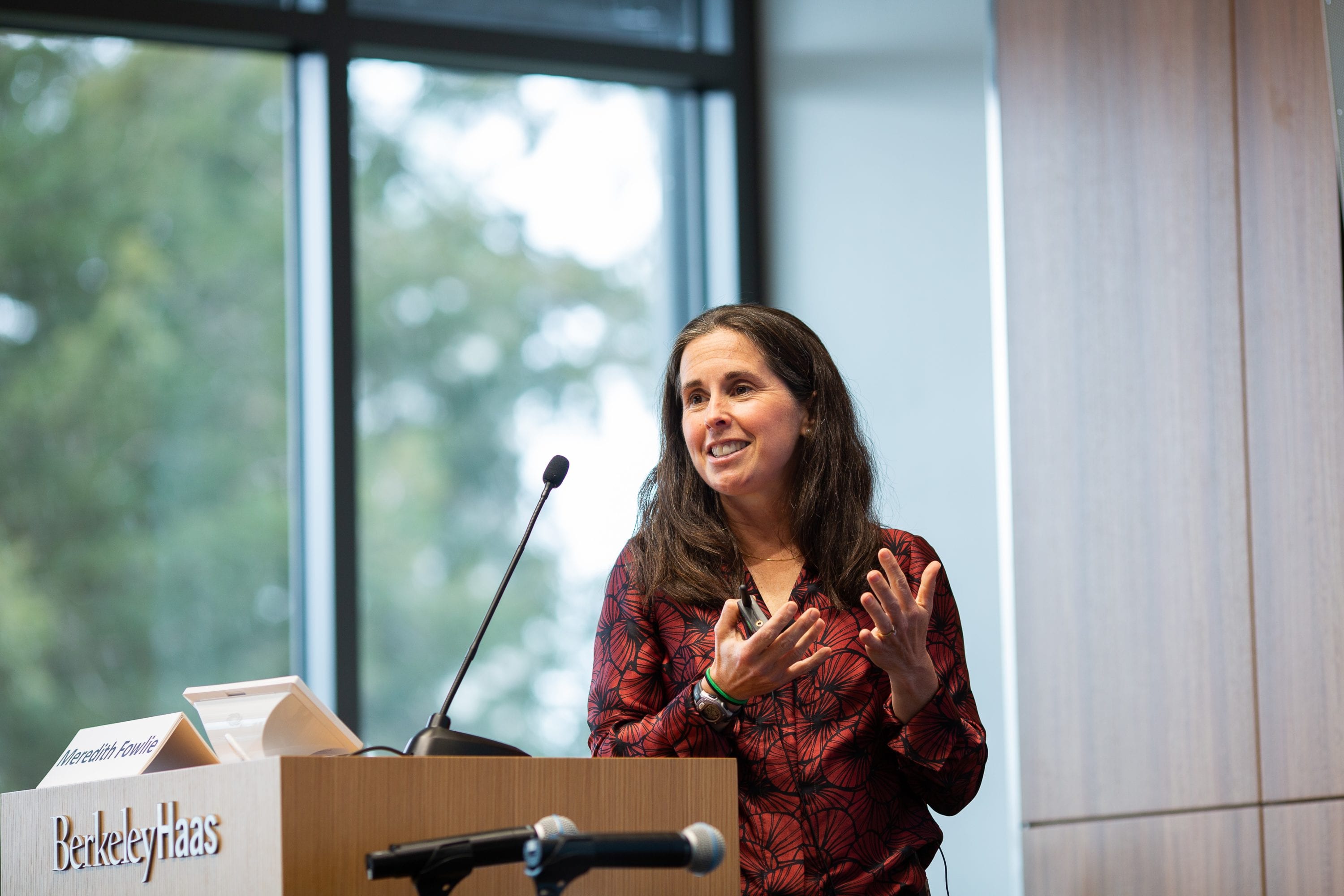Economics of Energy and the Environment Executive Education Course
Energy markets and environmental regulation have increasingly become intertwined. Professionals and executives in government and business need an understanding of one to have a complete understanding of the other.
The Energy Institute offers multi-day professional and executive educational programs to help practitioners understand the fundamental concepts behind energy markets and environmental regulation. The classes are taught by UC professors. All classes are interactive and student participation is encouraged.
Topics include:
- Fundamentals of Electricity Regulation
- Retail Rate Design
- Competitive Wholesale Electricity Markets
- Market Power in Energy Markets
- Economics of Renewable Energy
- Reliability, Resource Adequacy, and Capacity Markets
- Energy Externalities
- Environmental Caps and Intensity Standards
The Energy Institute also partners with Berkeley Executive Education to create educational experiences for corporate and government organizations that address leadership, innovation, strategy and management.
Please review the FAQ’s in the section below, and contact us to discuss developing a program for your organization.
Frequently Asked Questions
- Subscribe to our email list to be notified about upcoming courses.
- Once our course has launched, click on the “register” button in the email received or return to the main Executive Education page to register (should take less than 5 minutes to complete).
- Registration ends two business days before the course start date. We often sell out by our early bird deadline (about two weeks before the course start date), therefore enrollment for the course may close early.
- Payment should be received two weeks before the course start date.
- Below are the most recent rates for the course which are subject to change:
-
- Non-Profit rate
$750 (early registration on or before November 20, 2023)
$800 (registration on or after November 21, 2023)
-
- Private-Sector rate
$1,750 (early registration on or before November 20, 2023)
$1,800 (registration on or after November 21, 2023)
- Our course is limited in size to enhance the participant-instructor experience. As we often sell out fast, it is important to register early to guarantee your seat in the course.
- If the course is full, our registration portal will automatically route you to the waitlist sign-up. If a seat becomes available, wait-listed individuals will be contacted on a first come, first serve basis.
- We also contact those on the waitlist in case they are interested in signing up prior to announcing the next course widely.
- If you are unable to attend, please cancel through the registration portal, or email [email protected].
- You can cancel up to 2 weeks prior to the start of the course and receive a full refund less a $100 processing fee. No refunds are provided for cancellations after this.
One-two weeks before the course begins, you will receive an email from our team with logistics, course materials (including agenda and module slides), required pre-work (if applicable), and your point of contact(s) throughout the course.
- Our course is open to a global audience, and wire transfers are the preferred method of payment for international attendees.
- Please review UC Berkeley’s wire transfer instructions on this page to ensure this process works on your end.
- Register for the course, then contact us at [email protected] to alert us of the payment set-up.
- On the wire transfer, include our contact information as reference: Cristina Bentley, [email protected], 510-642-9590, Energy Institute at Haas.
- The routing number for wire transfers is: 0260-0959-3.
- Students can take this course at the non-profit rate listed above.
- However, the material in the course is a subset of the material in the EEM course that Professor Lucas Davis teaches each Spring at Haas.
- We welcome group registrations and would be happy to guide you through the process.
- Once you register the first person in the group, it will ask if you would like to add any additional people to that registration. Select credit card if paying on the spot, or check if submitting a check or wire transfer.
- Contact us at [email protected] if you would like a customized group invoice, and/or to notify us of check/wire transfer payments that are on the way.
- For group attendees using check/wire transfer payments: Once attendees are registered in our portal, please also email us a copy of the purchase order for our records.
- Unfortunately as this is not an actual class that goes through the UC Berkeley Office of the Registrar, we are not set-up to accept tuition assistance, award payments, or other educational funded accounts directly.
- Our course set-up is similar to a registration event payment where attendees can pay via credit card, check, or electronic bank transfer. We are however able to accept third party payments just as long as we can invoice the payor.
- After the course has ended, we provide electronic certificates of completion to confirmed attendees upon request.
- Please email us at [email protected] to request a certificate.
The Course materials are typically available on the password protected link for two weeks after the course ends.
Email us at [email protected] or call at 510-642-9590 for additional information.

